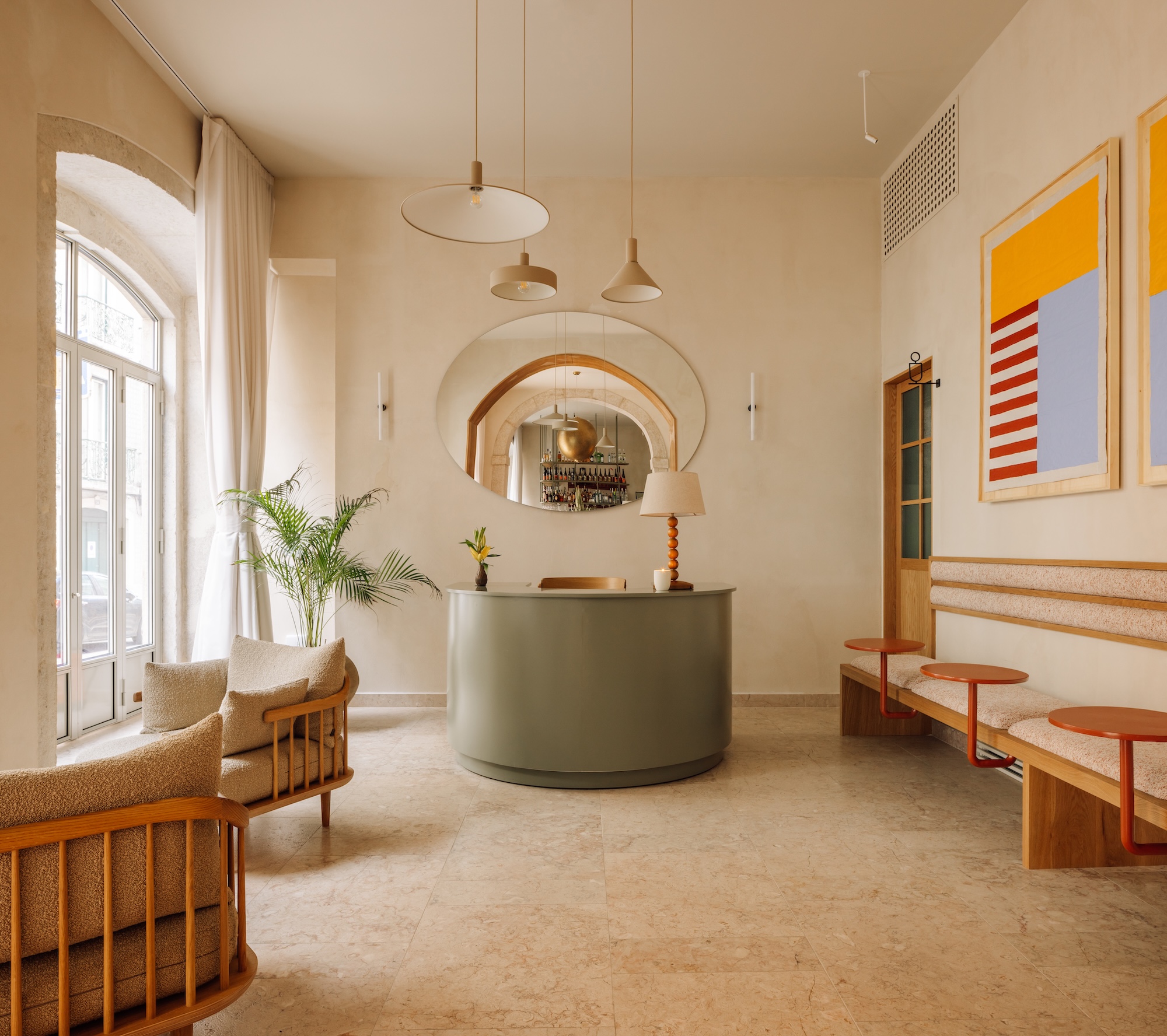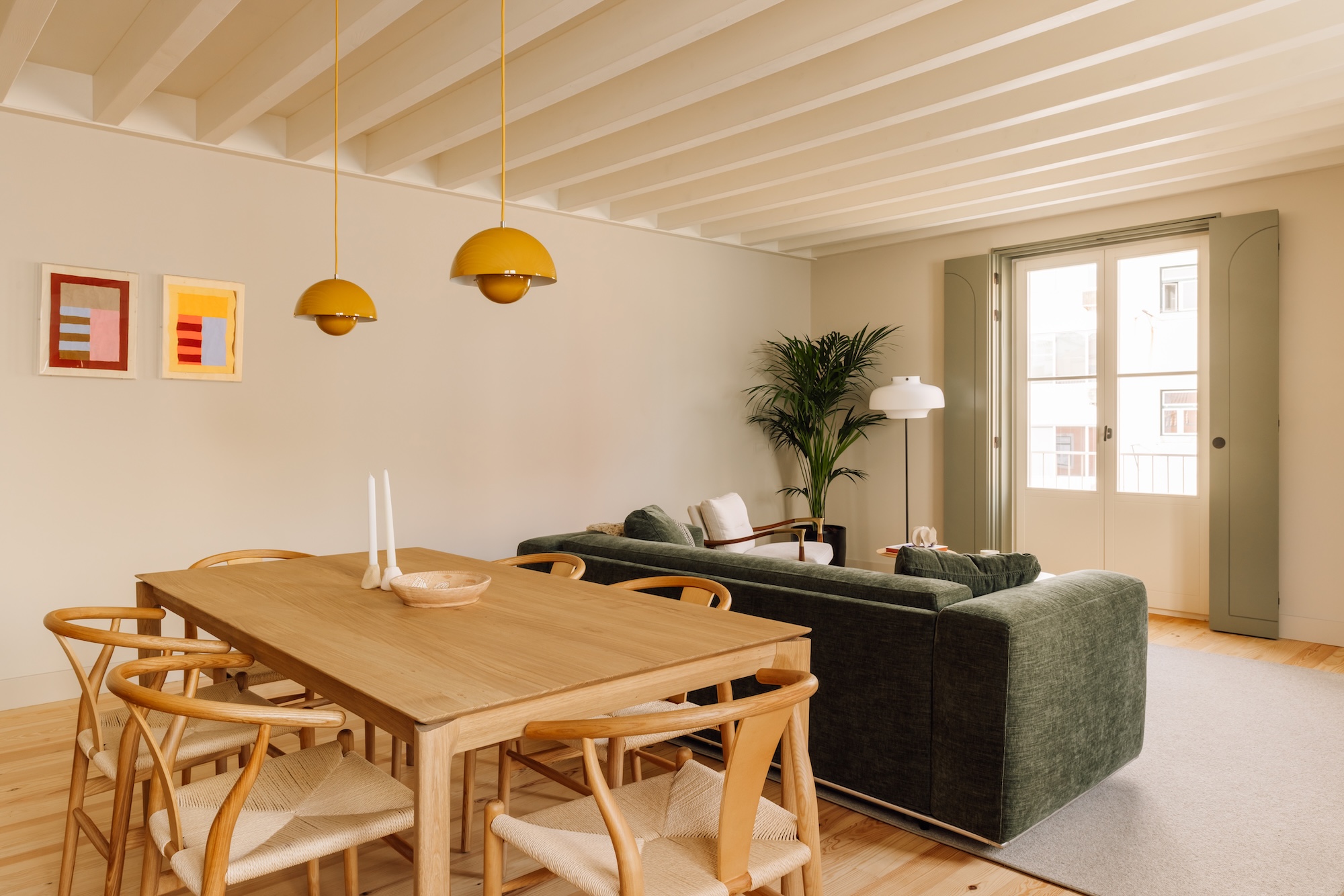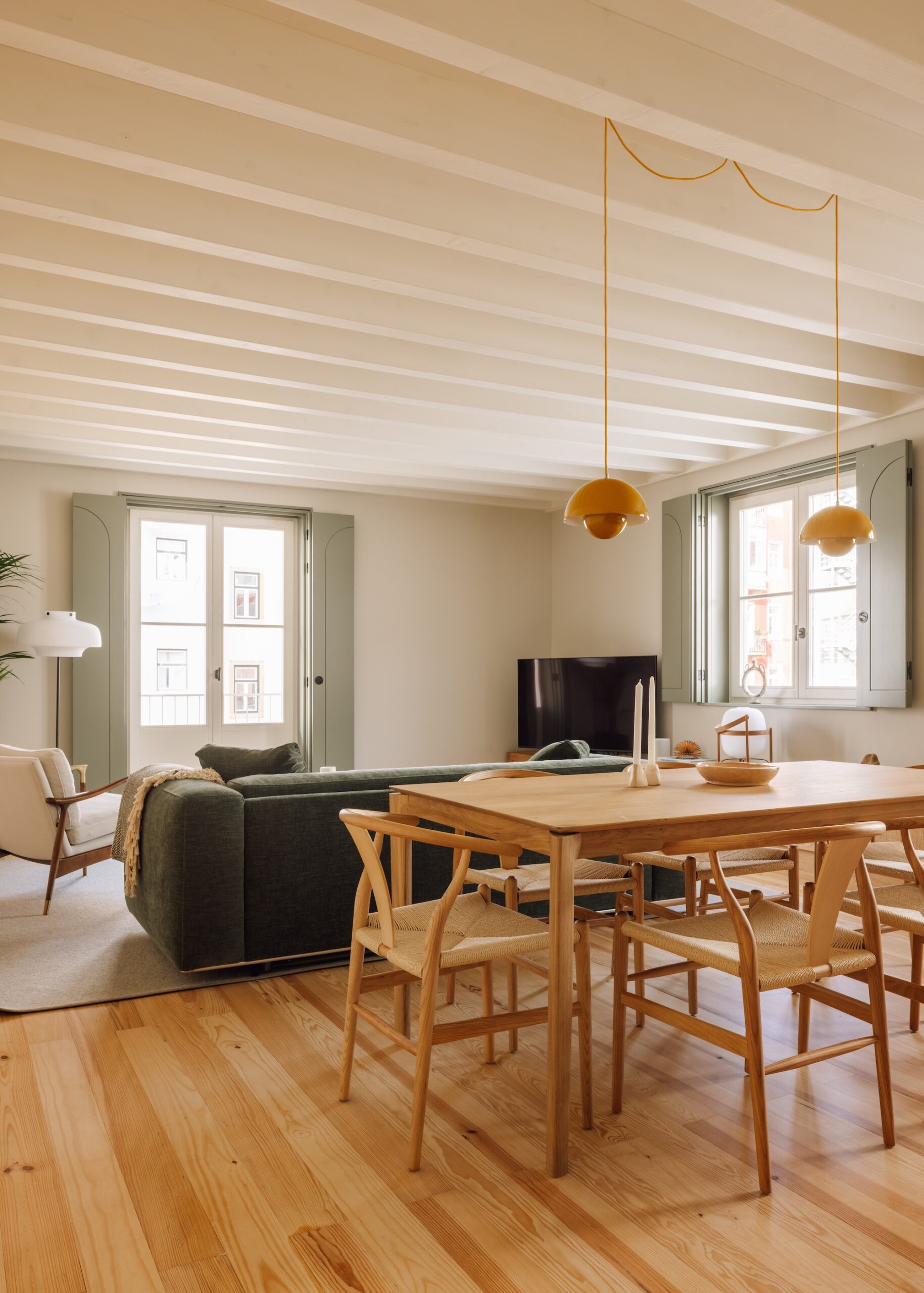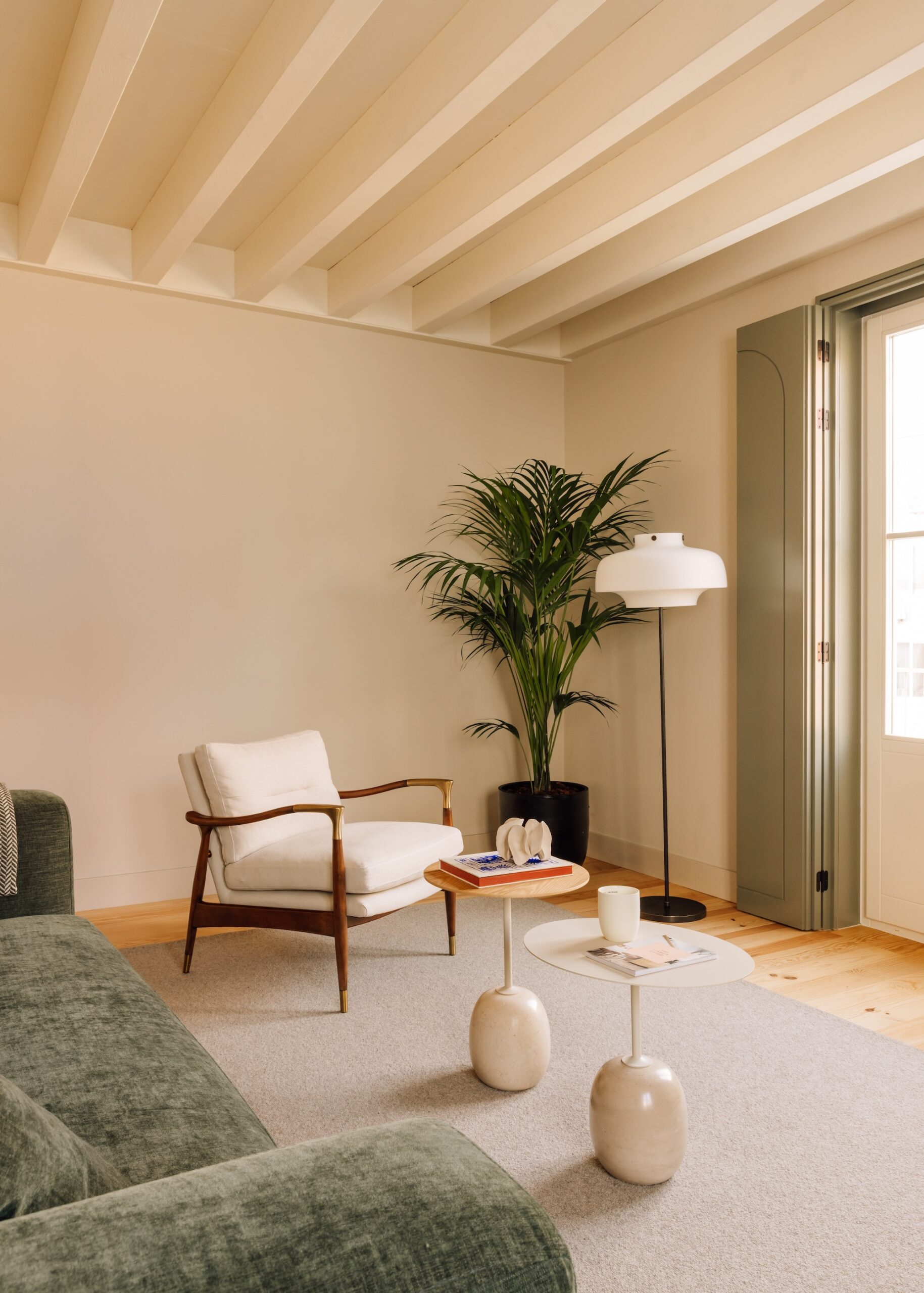The Poetry of Place at The Verse
In the heart of Lisbon's Rua de São Bento, where cobblestones whisper centuries of stories, The Verse aparthotel emerges as a meditation on what it means to feel at home in an unfamiliar place. Here, Studio Astolfi has orchestrated something remarkable: a space that doesn't merely accommodate travelers but transforms the very notion of temporary residence into an art form.

Photography by Francisco Nogueira
The project's genesis speaks to a peculiarly contemporary anxiety. The founders, frequent travelers themselves, recognized the growing gulf between the sterile efficiency of modern hospitality and the human need for belonging. Their response was to create what might be called "domesticity as design philosophy," where every element serves both functional necessity and emotional comfort.

Photography by Francisco Nogueira
Walking through The Verse, one encounters a masterclass in material storytelling. The custom kitchenettes, with their marriage of wood paneling and stone worktops, suggest not the anonymous efficiency of hotel amenities but the accumulated wisdom of generations of Portuguese craftspeople. These surfaces bear the patina of authenticity, where oak and walnut converse with pink limestone and Verde Viana marble in a dialogue that spans geological time.

Photography by Francisco Nogueira

The bathrooms present perhaps the most compelling evidence of Studio Astolfi's craft-conscious approach. Here, hydraulic mosaic floors and Tosco washbasins in terracotta tones create spaces that feel less like utilitarian necessities and more like private sanctuaries. The hydraulic tiles, a technique that flourished in the Mediterranean during the late 19th century, carry forward a tradition of making the everyday extraordinary through patient, skilled labor.

Photography by Francisco Nogueira
Yet it's in the living spaces where the studio's vision truly crystallizes. The open-plan configuration that merges kitchen and lounge chair arrangements doesn't simply maximize square footage but creates what the designers call "rooms for conversation." This spatial generosity, rare in urban hospitality, suggests a return to older models of domesticity where public and private life flowed together naturally.

Photography by Francisco Nogueira
The material palette itself tells a story of place and time. Terracotta, olive green, and creamy white tones don't merely coordinate; they evoke the dusty light of Portuguese afternoons and the weathered surfaces of Lisbon's architectural heritage. These colors, punctuated by textile variations and carefully chosen objects, create what might be termed a "curated vernacular," contemporary sophistication that remains rooted in local tradition.

Photography by Francisco Nogueira